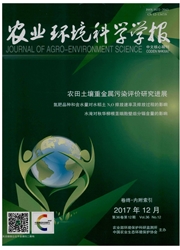

 中文摘要:
中文摘要:
为了更好地促进农业面源污染的防治,归纳分析了农田面源污染及生态补偿的区域性和个体性差异,提出农田面源污染差别化的补偿需要以面源污染形成、土地利用、生态资源禀赋、社会经济发展等区域性差异和公众意识觉悟及农户种植经营等个体差异为核心,实施差别化的生态补偿方案,并针对当前我国农田面源污染生态补偿存在的问题提出了相应的差别化补偿建议。
 英文摘要:
英文摘要:
By comparing the ecological compensation of agricultural non-point source pollution in China and abroad, this study analyzes the regional and individual differences of ecological compensation related to agricultural non-point source pollution, and suggests that an effective policy should explicitly consider regional-level heterogeneity including the formation of non-point source pollution, land use, ecological resource endowment, and socioeconomic development as well as individual-level heterogeneity such as public awareness and individual farming practices. We advocate a targeted ecological compensation regime and offer specific suggestions on the implementation of this differentiated policy in the context of Chinese agriculture. In the western region, households that reduce their use of agricultural plastic film, the main non-point source pollutant, can be compensated. However, in the eastern region, compensation should be concentrated on cutting down the use of fertilizers and pesticides. In the south, where heavy metals in the soil are a significant obstacle to regional development, the main methods of alleviation should focus on the improvement of the soil, including adding chemical additive or planting vegetation that adsorbs heavy metals.
 同期刊论文项目
同期刊论文项目
 同项目期刊论文
同项目期刊论文
 期刊信息
期刊信息
